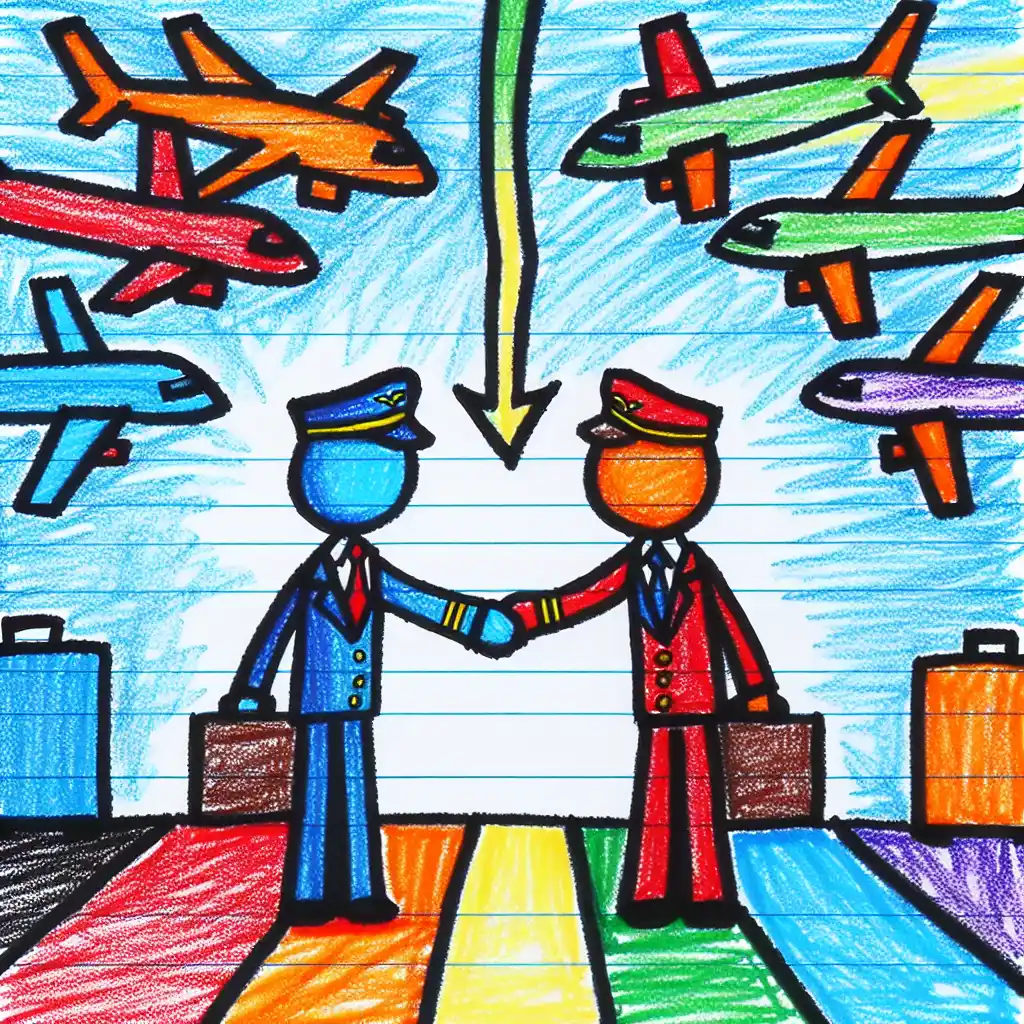Air Canada, flight attendants reach tentative deal to end strike

Explain Like I'm 5
Imagine you have a favorite toy plane that you love flying around your house. But one day, the pilot and crew of your toy plane say they need more snacks and naps to keep flying it for you. You really want to keep playing, so you agree to give them what they need. Just like that, Air Canada and their flight attendants were having a disagreement because the flight attendants wanted certain things to make their jobs better. They stopped working, which is like pausing a game, and this is called a strike. But good news! They’ve just made a promise to each other to start playing again, which means flights can go back to zooming around in the sky.
Explain Like I'm 10
Air Canada and their flight attendants had a bit of a problem recently. The flight attendants, who help passengers on the plane, weren't happy with their work conditions, like how much they get paid and other job-related things. So, they decided to go on strike. A strike is when workers stop working to protest something they want to change. This can cause a lot of disruption, especially for an airline, because planes can't fly without their crew!
To solve this, Air Canada and the flight attendants talked things over and came to a tentative agreement. "Tentative" means it's not final yet; it's like saying, "We agree, but we just need to double-check everything’s okay." This agreement has ended the strike, and now the flight attendants will start working again, which means Air Canada's planes will be back in the air, taking people where they need to go.
Explain Like I'm 15
Air Canada recently faced a significant disruption when their flight attendants, represented by the Canadian Union of Public Employees, went on strike. The flight attendants had several grievances regarding their employment conditions, which typically include wages, benefits, and work schedules. Strikes in essential services like airlines can have widespread effects, not just on the company’s operations but also on the economy and the public, as travel plans are heavily disrupted.
After negotiations, both parties reached a tentative agreement, which means they've agreed in principle, but the details need to be finalized and approved by the union members. This resolution is crucial because it stops the strike and allows for the normalization of flights, which is vital for both Air Canada's business and the travelers relying on their services.
Historically, labor strikes in the airline industry reflect broader labor market trends and can influence negotiations in other sectors, as they highlight the power dynamics between employers and employees. The resolution of this strike might set a precedent for similar disputes elsewhere, affecting future labor negotiations in Canada and possibly other countries. The end of the strike is a relief for many, but it also opens up discussions about workers' rights, corporate governance, and the sustainability of current business models in the increasingly strained global aviation industry.
Want to read the original story?
View Original Source